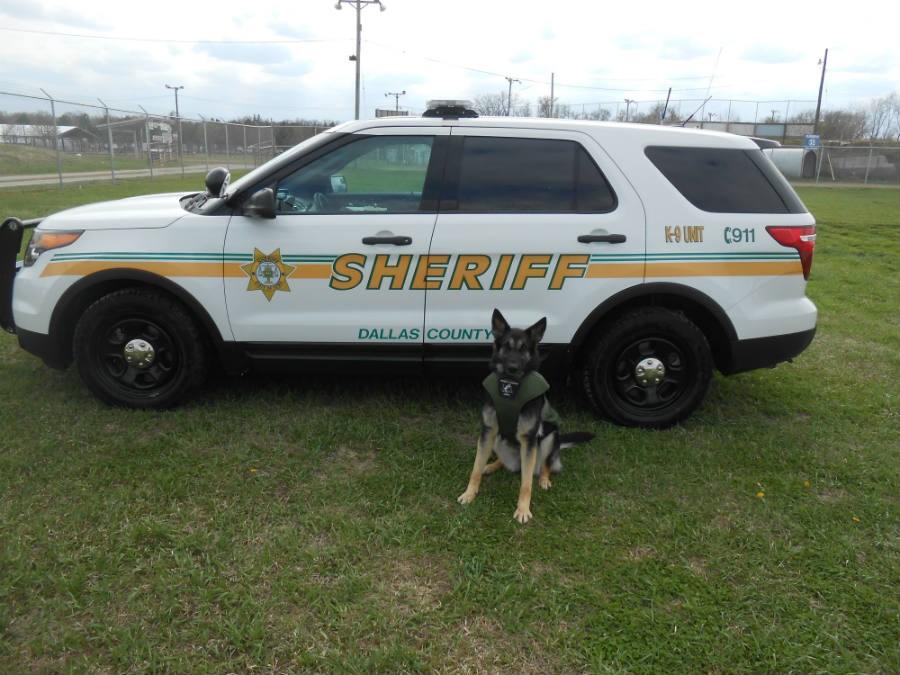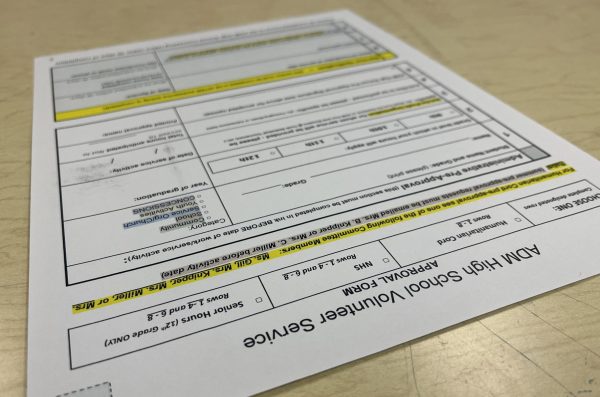On The Hunt
On December 4, Principal Lee Griebel made an announcement asking everyone to lock their rooms and stay inside for some time. Experiencing something like that for the first time as an exchange student, I became slightly worried. Lockdowns usually have some reason, so I felt a relief when it finally ended. But what was the exact reason for the lockdown happening?
It turned out that that day a specially trained drug dog checked students’ lockers. The dog’s name is Kaia, and she is three and a half-year-old female German Shepherd among many other drug dogs working for Dallas County.
Police dogs come from various places. Many dogs are imported from European countries. The sheriff’s office purchased Kaia from Midwest K-9 LLC in Pleasant Hill, Iowa, when she was two years old, and they purchased her from a police dog vendor in Tennessee.
She started off her career training to become a police dog when she was a puppy. Midwest K-9 is also well known for rescuing dogs from the Animal Rescue League in Des Moines, Iowa and training them to become police dogs. They have produced many successful police dogs that were rescued from the ARL.
Any dog that has a strong personality and a high drive can be successful in drug detection. However, the most common dogs used as police dogs are German Shepherds, Dutch Shepherds, Belgian Malinois and Labradors.
It takes many months with a certified trainer for a dog to learn drug detection. Drug dogs are trained to detect and indicate all of the main drug odors and their derivatives. The main and most common odors are methamphetamine, marijuana, heroin and cocaine.
Kaia and Deputy Brent Behnken went through a two-week handler certification course to become a team. She was already completely trained in the detection of drugs, so they had to train and certify as a team.
“It has been both a rewarding and challenging experience training and being a team with Kaia. It has been the best part of my law enforcement career,” said Behnken. “I really enjoy watching her grow and become better every day.”
Generally, police dogs live with their handler. Kaia lives at Behnken’s residence with him and his family. Talking about Kaia’s life after work, Behnken said, “At home Kaia is just like any other pet to her family. She is a very loyal and protective dog. She loves to play and go on walks around town.”
Some dogs are trained to be passive alert, meaning they will sit when they detect the odor to show an indication. Other dogs are trained as aggressive alerters, meaning they will scratch and dig at the source of the odor. Kaia is trained as a passive alert indicator.
When a police dog retires, they stay with their handler and live out the rest of their life. The sheriff’s office’s previous K-9 retired and continued living with his handler and his family. Kaia will most likely work until she is around 10 years old before she retires.



















